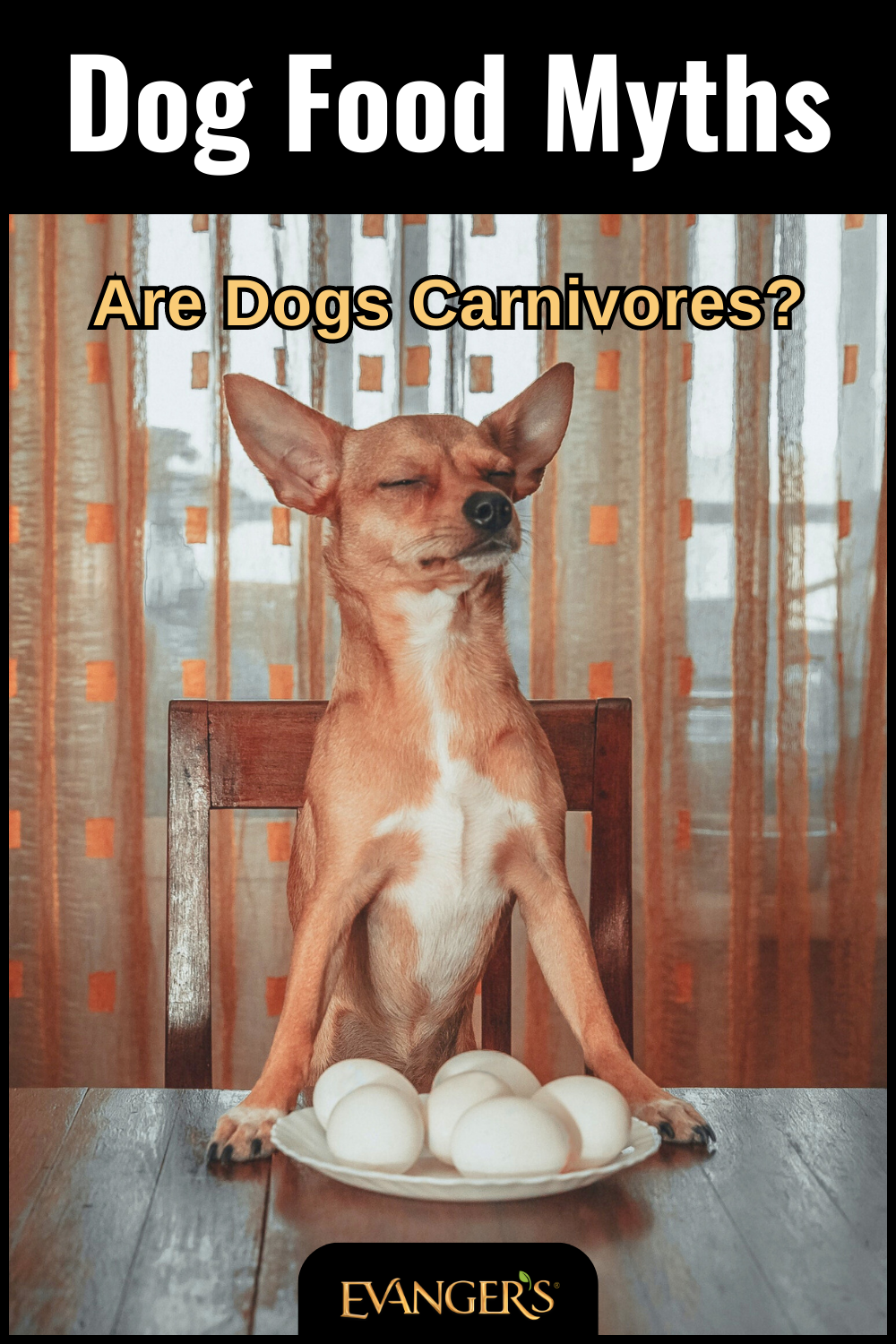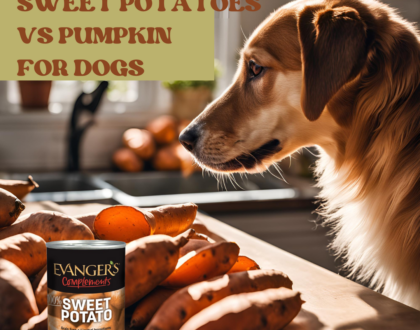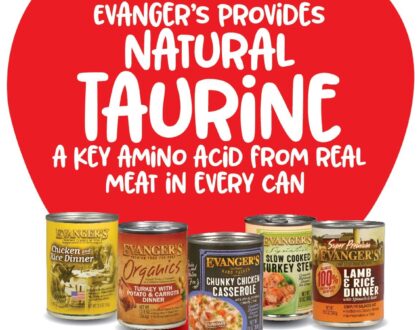Dog Food Myths: Are Dogs Carnivores?

by Ian Germann
When it comes to a dog’s diet, there’s a prevalent belief that dogs are carnivores.
This is fairly understandable as dogs are descendants of wolves, which are obligate carnivores. While wolves may eat some fruits and vegetables every now and then, the amount of it in their natural diet is negligible compared to what they eat in meat. This is because wolves cannot thrive off of fruits and vegetables alone, so they hunt for meat instead, which is much more nutritious for them.
However, the same cannot be said for dogs. Compared to wolves, dogs have a more flexible digestive system that is capable of processing a wider range of food types. For example, domesticated dogs are much better at digesting starch than their wolf counterparts, allowing them to gain a lot more nutritional benefit from foods such as rice and wheat. This is thanks to tens-of-thousands of years of evolution alongside their human companions. If you think about it, dogs have literally evolved to more efficiently eat our table scraps!
This has lead to dogs becoming omnivores, allowing them to even thrive with vegetarian diets! However, it’s important to note that not all plant-based foods are suitable for dogs. Some foods can be toxic to dogs and may cause digestive upset or other health issues. For this reason, it’s essential for dog owners to be knowledgeable about safe and appropriate foods to feed their pups.
For example, dogs should not eat any of the following foods:
- Chocolate
- Grapes and raisins
- Onions and garlic
- Avocado
- Macadamia nuts
Recommended Posts

Why Canned Sweet Potato is Better Than Canned Pumpkin for Dogs
September 27, 2024

DCM in Dogs: What Is It and What Should I Do?
January 08, 2024



